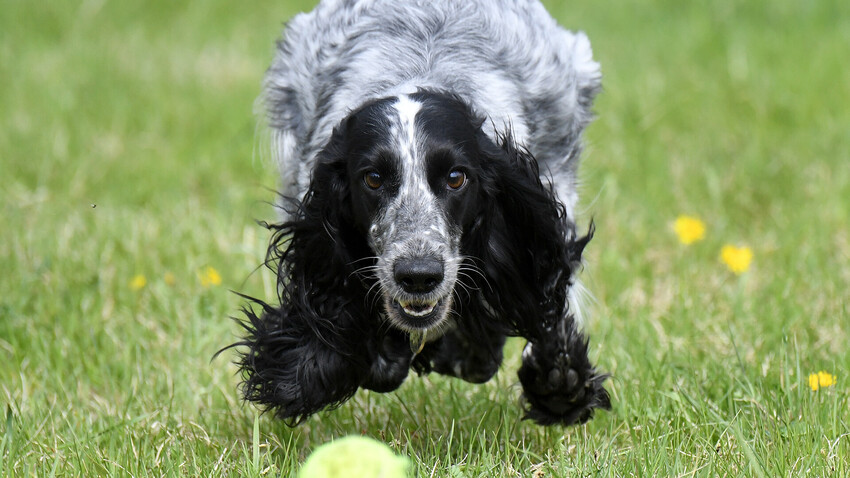
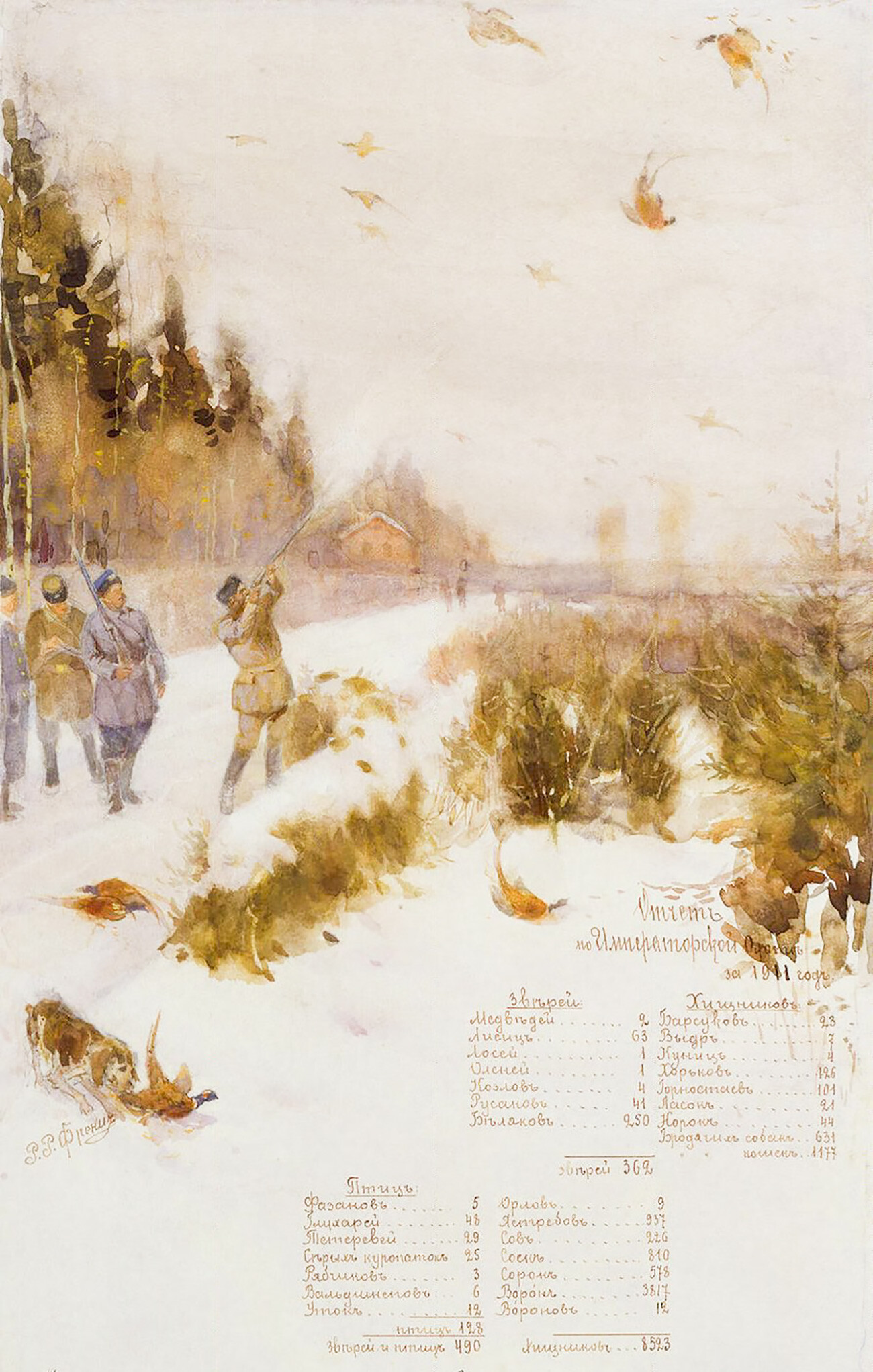
This breed owes its appearance to the uncle of Nicholas II, Grand Duke Nikolai Nikolayevich Jr. He founded the famous ‘Pershinskaya’ hunt and owned the Znamensky Pheasant game preserve in Peterhof, so he quickly paid attention to the excellent working qualities of spaniels. These dogs were excellent at hunting ducks, pheasants and woodcocks. At the end of the 19th century, Nikolay Nikolaevich was brought (most likely from England) a black cocker spaniel named ‘Dash’. And, after him, dogs of this breed were bought by Vladimir Dietz, a trapper of Imperial Hunt - they are considered to be the ancestors of Russian Okhotnichiy Spaniels (Russian Hunting Spaniels).
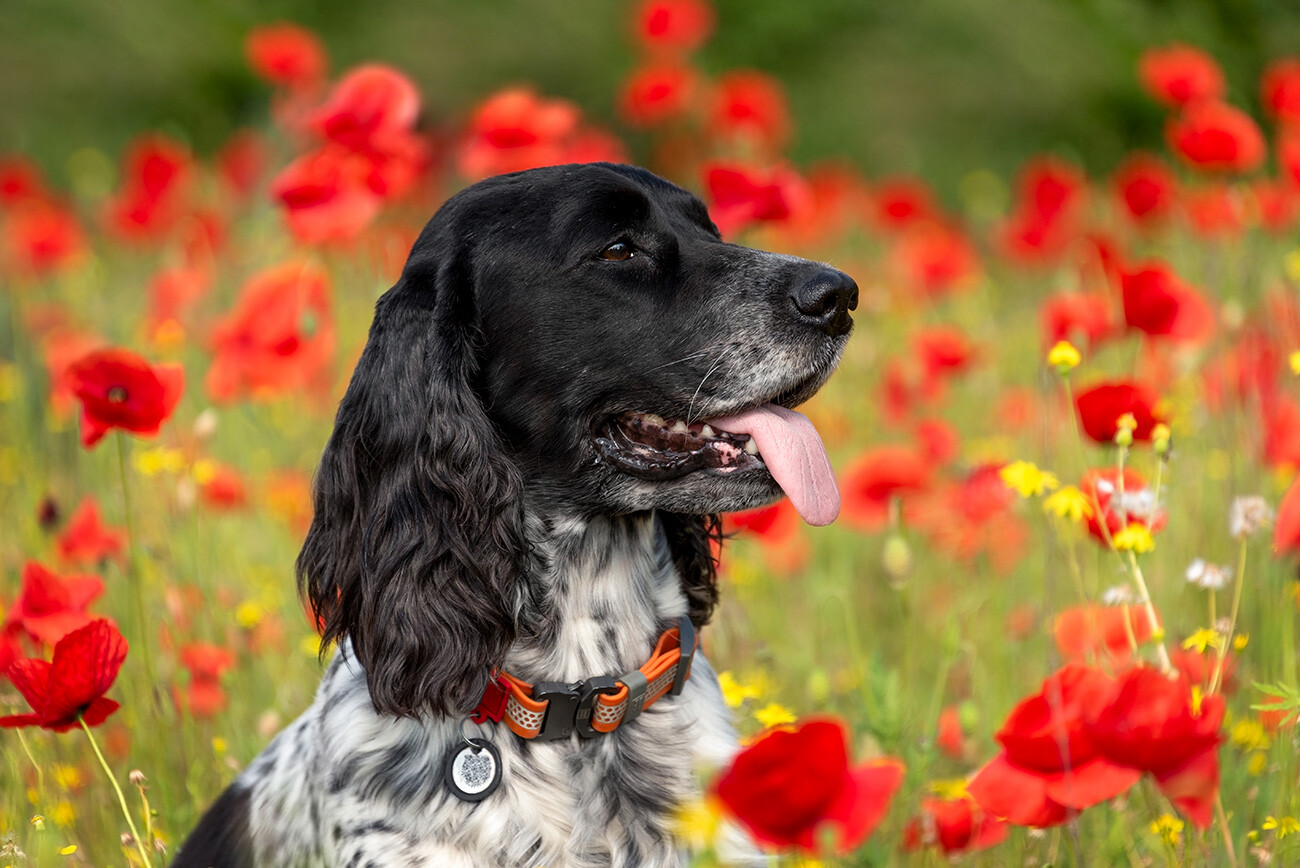
Russian breeders selected dogs with longer legs - this allowed them to hunt birds in local conditions - and with a brighter temperament. Already in the 1930s, the country had its own population of spaniels. And, in 1951, the first breed standard was approved.
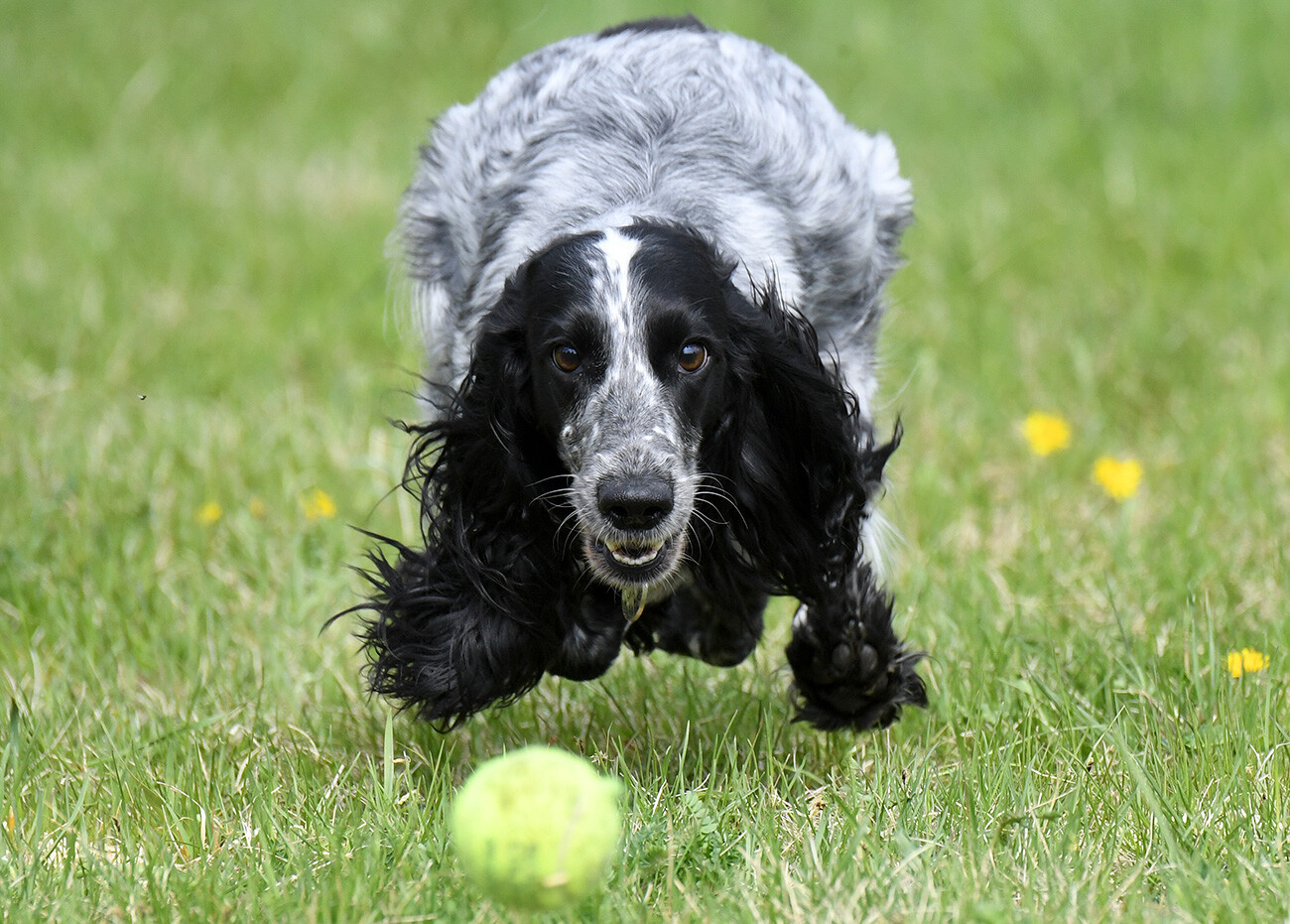
A real boom in Russian Spaniels happened in the 1960s-1980s. They turned out to be not only excellent hunters, but also excellent companions. "They gave me a small dog of a rare spaniel breed, the size of two large cats and ears down to the ground. When he eats, his ears get wet, when he sniffs the ground, he steps on his ears with his front paws," wrote writer Mikhail Prishvin, a great admirer of the breed, in one of his stories. A collection of stories about a puppy of this breed named ‘Tomka’ was written by Evgeny Charushin.
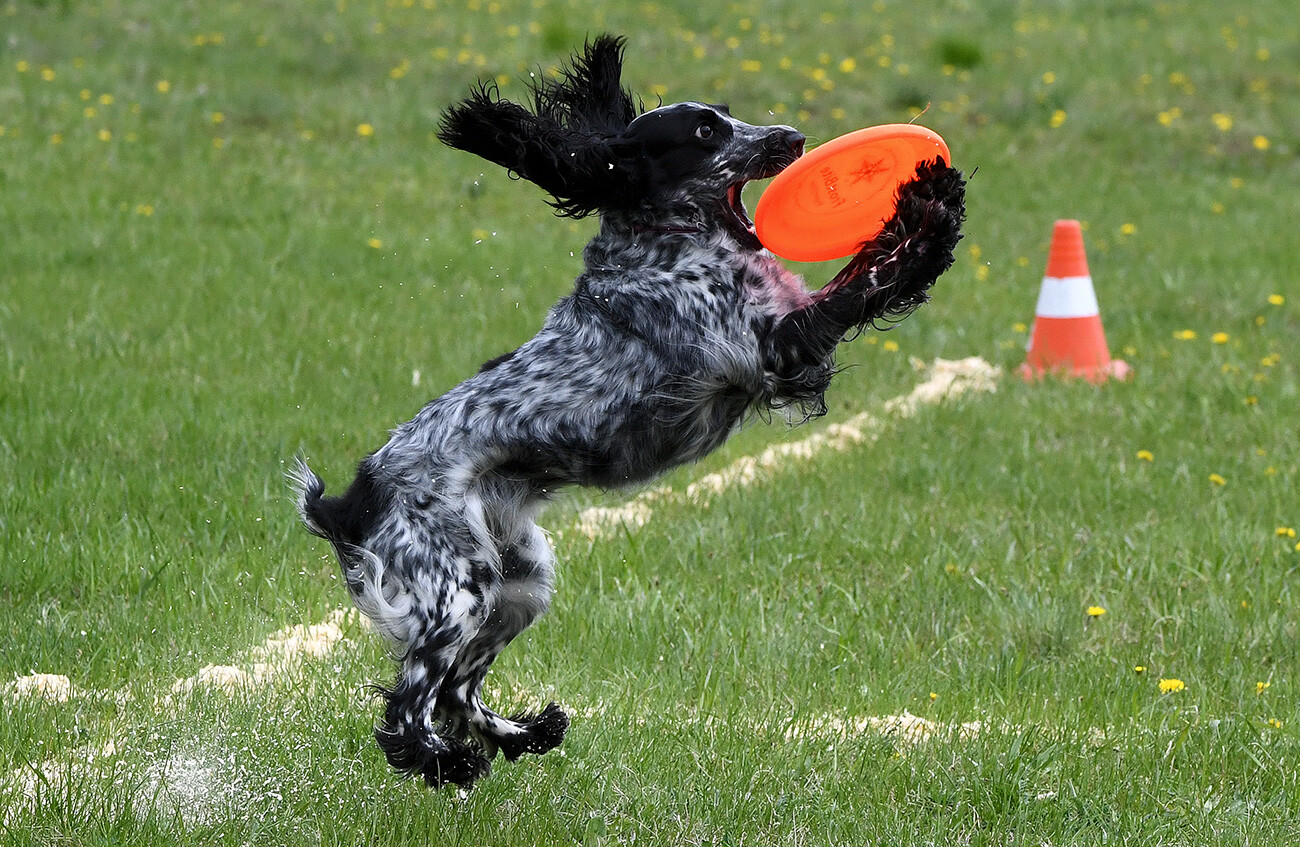
Russian Okhotnichiy Spaniels are unrivaled duck hunters. They work without a stand, without freezing, as pointers do, in front of the game, which allows them to hunt all feathered game and chase birds. They are relatively small dogs, 38-45 cm at the withers.
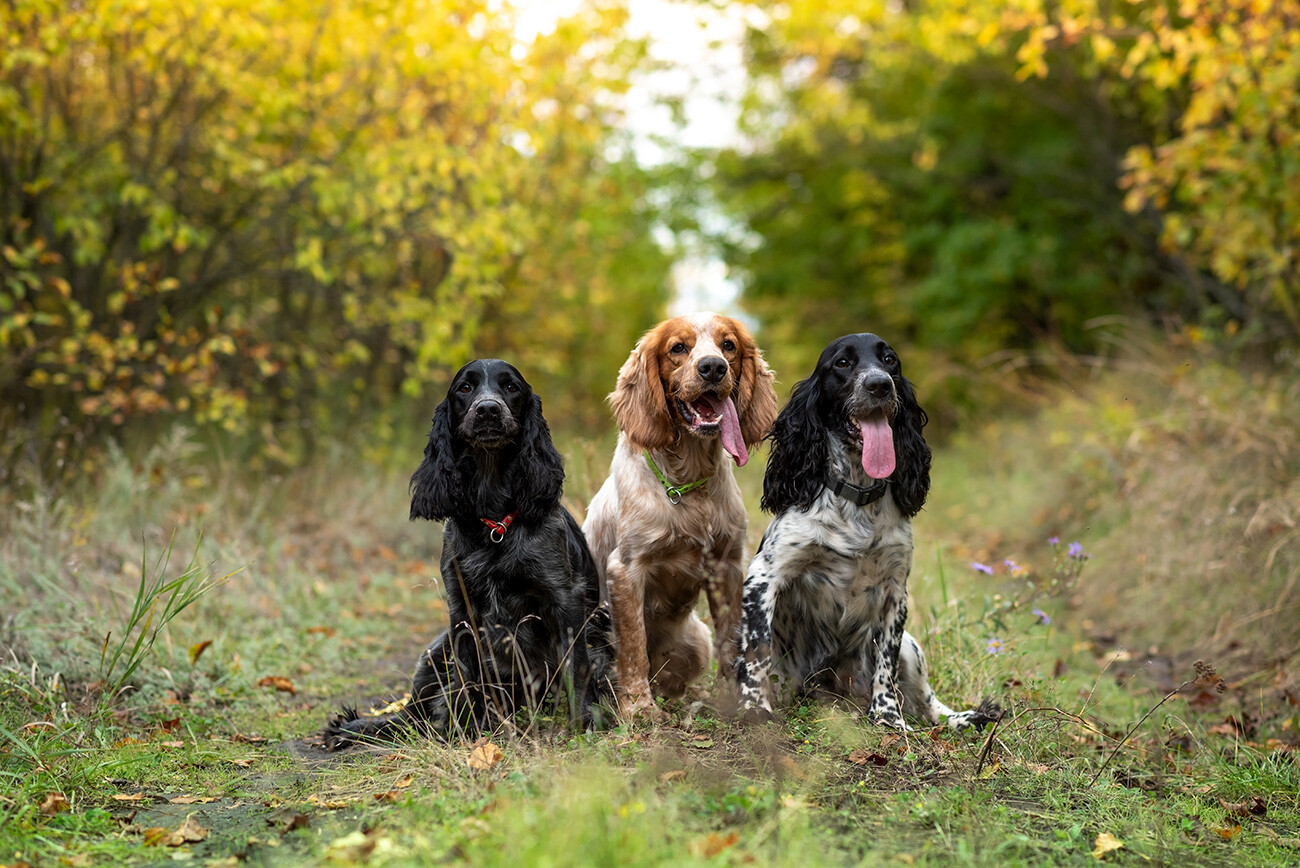
They come in solid colors (black, red, brown and tan options), as well as piebald and spotted. For example, black and white, black and white with tan, with or without speckles. They do not require clipping. Russian spaniels are hardy, smart, active, cheerful, easy-going, ready to join in a game with children as well as jump into the water for wounded birds.
Dear readers,
Our website and social media accounts are under threat of being restricted or banned, due to the current circumstances. So, to keep up with our latest content, simply do the following:
If using any of Russia Beyond's content, partly or in full, always provide an active hyperlink to the original material.
Subscribe
to our newsletter!
Get the week's best stories straight to your inbox